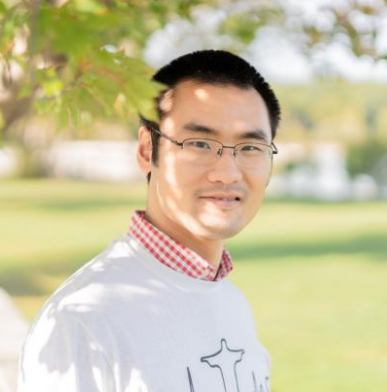Senior membership, the IEEE’s highest grade, recognizes veteran scientists, engineers and others with at least 10 years of professional experience who have shown significant performance over at least five years and have been nominated by other IEEE fellows and senior members. The IEEE reserves that status for fewer than 10 percent of its more than 400,000 members worldwide.
Wang received his doctorate in electrical and computer engineering from Purdue University in 2017. He joined ORNL in 2021 after training as a postdoc at Harvard Medical School. His current research, overseen by section head Anuj Kapadia, focuses on using high-performance computing, or HPC, and AI methods to solve imaging problems.
Wang’s accomplishments include developing a new computerized tomography imaging algorithm that delivers drastically improved image quality with less radiation. The algorithm, which won a scientific competition last year against more than 50 international competitors, enables earlier diagnosis of cancer at a greatly reduced radiation dose. Wang recently received seed money to fund further work on the algorithm and its potential applications to nonmedical imaging problems.
“I always knew I wanted to combine my studies of math and computer science in my research, and imaging is the right kind of work for me to integrate them,” Wang said. “I’m using math, computer science and HPC at the same time to help advance medicine.”
Wang grew up in Shanghai, China, and came to the U.S. in 2009 to attend St. John’s University in Minnesota. There he earned bachelor’s degrees in computer science and math before graduate studies at Purdue and postdoctoral studies at Harvard.
While at Purdue, his adviser suggested pursuing research in imaging, a moment he counts as foundational to his career.
“I fell in love with the subject almost immediately,” Wang said. “I still enjoy my research so much I don’t even need coffee to get me going in the morning. And here at Oak Ridge we have so many great resources like the Oak Ridge Leadership Computing Facility, the Spallation Neutron Source and the Center for Nanophase Materials Sciences that it’s a dream place to do this kind of work.”
Beyond his imaging work, Wang serves on various technical and program advisory committees and seeks to mentor younger scientists. In his spare time, he’s teaching his 3-year-old son to play soccer.
“My advice to young scientists is to pick a research problem they’re excited and enthusiastic about,” he said. “Doing this kind of work takes a lot of time and commitment, so you might as well enjoy it. I never feel like I’m inventing anything. I’m just exploring the natural laws that have always been out there in the universe and learning new ways to use them for our benefit.”
UT-Battelle manages ORNL for the Department of Energy’s Office of Science, the single largest supporter of basic research in the physical sciences in the United States. The Office of Science is working to address some of the most pressing challenges of our time. For more information, please visit energy.gov/science. — Matt Lakin




